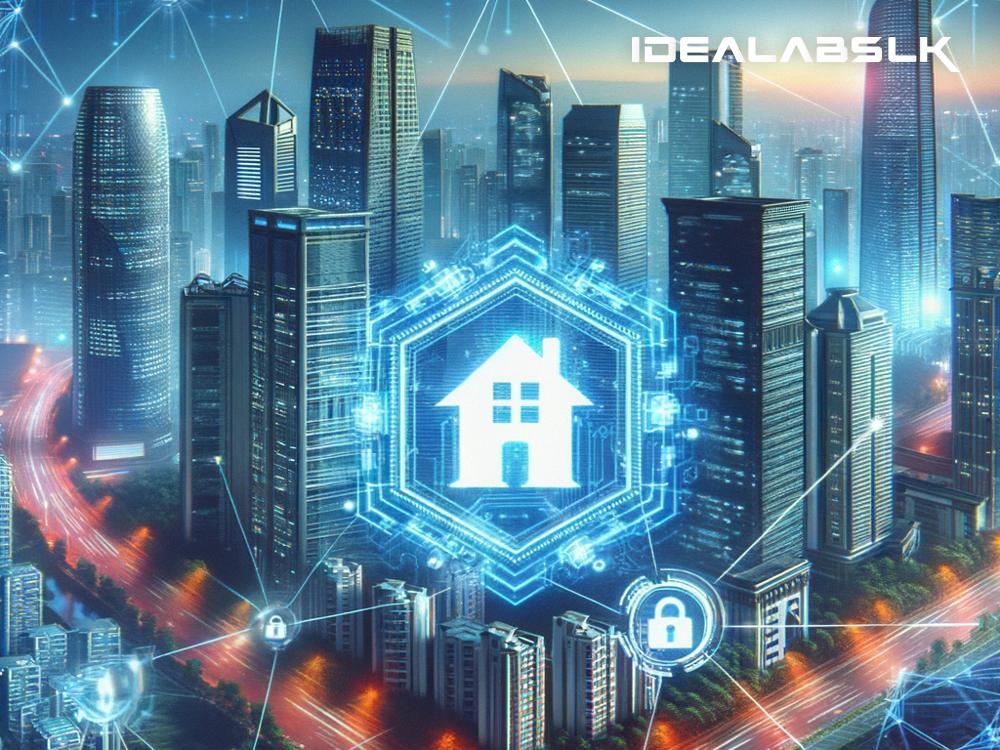Unlocking the Future: How Blockchain is Revolutionizing Real Estate Data
In the buzz of innovative technologies transforming our world, blockchain stands out as a game-changer in numerous sectors. Real estate, an industry as old as time, is no exception. Traditionally, buying or renting property involves heaps of paperwork, numerous intermediaries, and a significant amount of trust placed in various parties. However, blockchain-powered real estate data platforms are set to revolutionize this process, making it more transparent, secure, and efficient. Let's dive into the world of blockchain and discover how it's reshaping real estate.
Understanding Blockchain in Simple Terms
Before we explore its impact on real estate, it's crucial to understand what blockchain is. Imagine a digital ledger that records transactions, similar to pages in a book. Each "page" or block is linked to the previous one, forming a chain. This ledger isn't stored in one place; instead, it's distributed across numerous computers around the world. This setup makes the data almost impossible to tamper with, enhancing security and trust.
The Revolution in Real Estate
Real estate transactions are complex, often requiring the involvement of agents, lawyers, and banks. This not only adds to the cost but also the time it takes to close deals. Enter blockchain, with the promise to streamline these processes in several transformative ways:
-
Enhanced Transparency: Every transaction on a blockchain is recorded in a way that's permanent and easy to verify. This means that the entire history of a property, including previous owners, prices, and any disputes, can be available at your fingertips. Buyers and sellers no longer need to depend on third parties for reliable information, fostering an environment of trust.
-
Improved Security: The decentralized nature of blockchain makes it extremely difficult for fraudsters to manipulate data. For example, creating a fake title for a property or attempting to sell a property they don't own becomes nearly impossible. This level of security can greatly reduce fraud in real estate transactions.
-
Efficiency and Cost Reduction: By automating processes and reducing the need for intermediaries, blockchain can significantly cut down the time and cost associated with real estate transactions. Smart contracts, self-executing contracts with the terms directly written into code, can automate tasks like verifying information, processing payments, and transferring property titles, eliminating delays and reducing processing costs.
-
Liquidity and Tokenization: Blockchain introduces the concept of tokenizing real estate assets, which means converting property ownership into digital tokens that can be bought and sold easily. This could potentially increase the liquidity of real estate investments, making it easier for investors to enter or exit positions and democratizing access to what has traditionally been a market dominated by wealthy individuals and institutions.
Real-World Applications and Examples
Several blockchain-powered platforms are already making waves in the real estate sector. For instance, platforms like Propy offer an end-to-end solution for buying and selling properties, utilizing smart contracts to streamline the process. Others, like RealT, focus on tokenizing real estate assets, allowing investors to purchase fractions of properties and earn returns on their investments.
Challenges and the Road Ahead
Despite its potential, the integration of blockchain into real estate is not without challenges. Regulatory hurdles, the need for widespread adoption, and the technical complexity of blockchain technology are significant barriers to overcome. However, as the technology matures and more stakeholders see its benefits, these obstacles are slowly being addressed.
Conclusion
The fusion of blockchain with real estate promises a future where buying and renting properties is faster, cheaper, and more secure. As blockchain-powered platforms continue to evolve, they could potentially transform the landscape of real estate investment, making it more accessible and transparent. While we're still in the early days of this revolution, the potential for change is undeniable, and it's an exciting space to watch.
Blockchain is not just a buzzword; it's a powerful technology that's paving the way for a more efficient and trustworthy real estate market. As we move forward, embracing blockchain could prove to be one of the most significant steps in advancing the real estate industry into the digital age.

